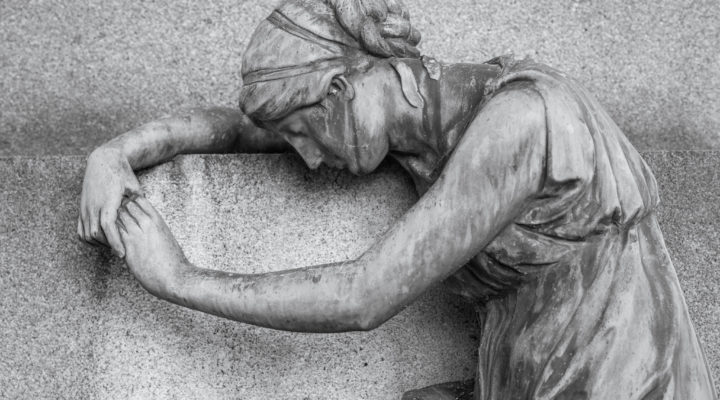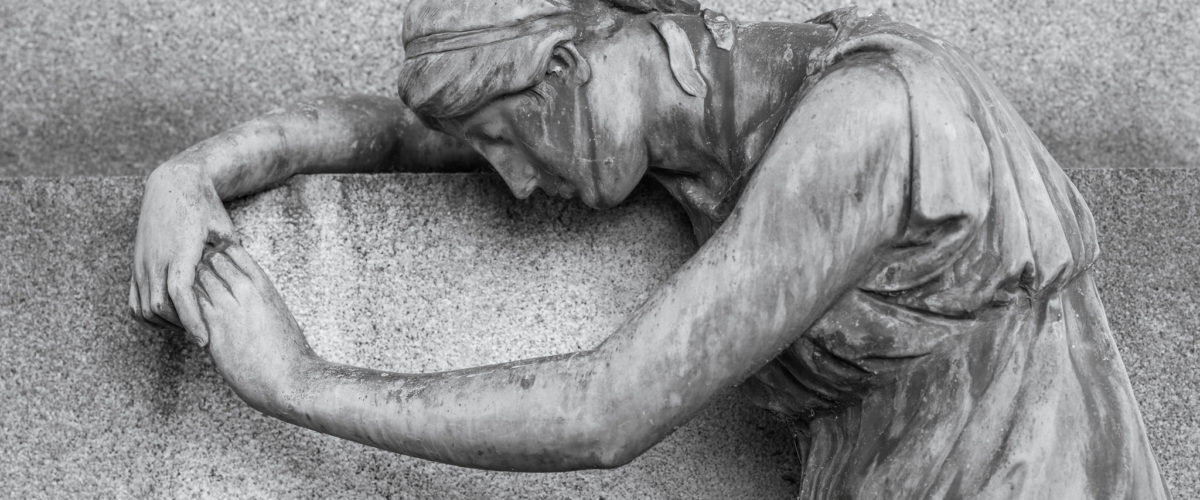As a minister, I mostly deal with grief among parishioners as a process that follows the death of a friend or loved one. When a friend or loved one dies, a bereavement process begins, launching a journey that allows those left behind to proceed through a variety of stages of grief.

Barry Howard
Many years ago, Elizabeth Kubler-Ross identified the five stages of grief — denial, anger, bargaining, depression and acceptance. When I took a course on death and dying at the university, I learned different individuals pass through the stages at different speeds and perhaps even in different orders.
But I learned grief is not limited to the experience of loss through death. Grief can occur over the loss of a job, the loss of income, the loss of one’s freedom or the loss of one’s faculties.
Grief is not limited to loss through death. Grief can occur over loss of a job, loss of income, loss of one’s freedom or loss of one’s faculties.
Since my first visit to a funeral home at age 6, I have been aware of the kind of grief that accompanies death. Only in recent years have I come to understand the grief one can experience for those who still are alive. As I have dealt with people experiencing diminishment and dementia, I have gained a new appreciation for how we grieve for the living.
First, in 2004, my father was diagnosed with small-cell lung cancer. Although he responded well to the initial treatments, a heart condition caused therapy to be suspended. During the ensuing months, I grieved for his loss of weight, his loss of independence, his loss of mobility, his loss of modesty and ultimately his loss of breath. By the time he died, he was barely recognizable to his friends, and I seemed to have made multiple stops at every one of the five stages. I grieved more during his deterioration from cancer than I did after his death.
The second saga began almost one year after my father’s funeral, when my wife’s mother was diagnosed with ovarian cancer. For my wife and me, the same grief cycle began all over again. Although we enjoyed many good days and fun visits with my mother-in-law, who demonstrated extraordinary hope and perseverance, we grieved over her loss of hair, her loss of dexterity and balance due to neuropathy, her loss of ability to hold her grandchildren, her loss of appetite, her loss of youthfulness, her loss of vitality and her loss of ability to serve in her many volunteer positions. When she died three years after her diagnosis, we believed death came as a blessing, an act of deliverance from the terrorism this disease can inflict upon a body.
Finally, just before the death of my mother-in-law, my grandmother was diagnosed with Alzheimer’s. And our family began to experience grief over a different kind of loss. This severe expression of dementia manifests itself in a variety of ways. Although many of the symptoms seem to come and go, and some days are better than others, during her journey we grieved her loss of memory, the loss of her familiar personality, the loss of her awareness of her surroundings, the loss of her freedom, the loss of her driving, the loss of her home, and because she had been relocated to a care facility, the loss of her church, the loss of her community and the loss of her network of friends.
When she passed in 2011, we believed she experienced the ultimate healing. We miss her, but her passing was a welcomed relief for her, and under no circumstances would we wish her to have lingered and sunk deeper into the chaos and confusion of dementia.
Now, we are telling stories about our aunt, one of my father’s two remaining siblings, who is near the end of her life on earth. She has been in a care facility for almost 10 years and in the memory care wing for the past several years. Thankfully, she has continued to possess a kind personality and positive attitude despite her loss of memory.
On the occasions I have had the opportunity to visit her, I have treasured her positive influence in our family across the years, and I have grieved that she can no longer remember many of those treasured experiences and relationships. When she closes her eyes for the final time here, I will continue to grieve, even though I am aware a peaceful homegoing will be an answer to her prayers.
Grieving for the living can be more complex, more long-term and more exhausting in many circumstances than the grief associated with a death.
I am still thinking about how grieving for the living differs from grieving for the deceased. As a pastor, I am more aware now of how many in my community are grieving a loss related to those who are still here — the grandmother who is grieving over the grandson who is in prison, the father-in-law who is grieving over the loss of his daughter-in-law because of a divorce, the former manager who is grieving over the loss of his colleagues after his job was terminated, the school teacher who is grieving over the loss of contact with students following her retirement and the family who is grieving the gradual dementia in their mom or dad.
In reflecting on my own experience, I contend grieving for the living can be more complex, more long-term and more exhausting in many circumstances than the grief associated with a death.
To those grieving someone who is still here, let me pass along a few suggestions friends and counselors offered to me:
- Try to practice good self-care.
- Find ways to stay connected to your faith community.
- Strive to maintain a good regimen of exercise, rest and healthy nutrition.
- Maximize your time with your loved one.
- Maintain at least one hobby, project or activity that is replenishing for you.
- Allow and encourage friends and family members to grieve at their own pace in their own space as the journey unfolds.
- Ask God to renew and replenish your strength.
Grief lasts for a season, and each season is unique in context, scope and duration. And sometimes grief doesn’t involve a funeral home. Grief doesn’t always emanate from a sudden loss or a final loss.
It may involve the gradual loss of someone who is still here.
Barry Howard is pastor of the Church at Wieuca in north Atlanta. He also is a leadership coach and columnist for the Center for Healthy Churches. He and his wife, Amanda, live in Brookhaven, Ga.
Related articles:
Gifts of hospitality in the midst of grief
When the dying stops, will we remember to address the multiplied grief of COVID?
Grief fatigue: Are we really making a difference in the world’s healing?


